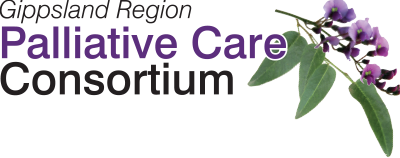
Communication Skills
Therapeutic communication is critical to identify patients’ goals of care, particularly in the cancer and palliative care setting. The process of communication is central to effective, safe, patient-centred and compassionate care. Effective communication has the potential to improve quality of life, access to key services, and relationships between patients, families, and clinicians.
The care provided to patients at their end of life should be grounded in holistically valuing patients’ needs. When patients, their carers and families face serious illness, they may have questions regarding the transition to palliative care and end of life care. Effective therapeutic communication skills guide the clinician in initiating and responding to individuals to facilitate discussion and may assist patients in making informed decisions, particularly regarding end of life care regarding patients’ physical, emotional, and spiritual needs.
With the implementation of the Voluntary Assisted Dying Act, June 2019, it is vital for clinicians to be able to confidently respond to Voluntary Assisted Dying discussions when raised by their patients.
Therapeutic communication skills are not inherent; these skills can and must be learned. Recent literature has emphasized that the role of communication is a core and complex skill required by all healthcare professionals and has identified that:
good communication can reduce patients’ distress and lead to better adjustment and satisfaction. Patients’ psychological distress impedes their understanding, health behaviours and possibly survival;
developing communication skills is in line with good clinical practice;
effective communication can reduce clinicians’ stress/burnout and may lead to fewer complaints and litigation;
clinicians express a need for training; and
communication skills don’t necessarily get better with time.
Resources
-
Click here to view the Clinical practice guidelines for communicating prognosis and end-of-life issues with adults in the advanced stages of a life-limiting illness, and their caregivers
-
The Clinical Practice Guidelines for the Psychosocial and Bereavement Support of Family Caregivers of Palliative Care Patients was developed by the Centre for Palliative Care as a resource for health professionals to improve the psychosocial and bereavement support of family caregivers of palliative care patients.
Click here to download these guidelines.
-
Flinders University’s end-of-life ESSENTIALS has developed a suite of resources for you to adapt and adopt. Resources include:
Timing of discussion
Preparation for the discussion
Physical and social settings
How to discuss prognosis and end-of-life issues
General strategies to facilitate hope and coping during prognostic and end-of-life discussions
Cessation of disease-specific treatments
Introducing specialist palliative care servicesDiscussion life expectancy
Discussion future symptoms and symptom managementAdvance care planning
Discussing the process of death and dying
Requests by family members to withhold prognostic or end-of-life information from the patient
Dealing with conflicts
Dealing with denial or expectations that are not consistent with clinical evidence
Click here to be directed to the end-of-life ESSENTIALS website
-
Flinders University’s end-of-life ESSENTIALS has developed a suite resources to support educators in delivering training to develop communication in the context of: an individuals response to understanding that life is limited, and discussion of changing goals of care
Click here to be directed the the End-of-life ESSENTIALS website
-
Click here to visit the PalliAGED Communication Skills webpage.
-
The Southern Metropolitan Palliative Care Consortium (SMRPCC) developed the Palliative Care Conversations – Facilitator’s Guide to support palliative care specialists to deliver an information/education session to equip generalist health professionals with sufficient confidence, skill and resources to make appropriate and timely referrals to palliative care while maintaining the patient’s trust and supporting their well-being.
Click here to download this guide.
-
A guide for clinician for conversations about the last days of life
Click here to view the guide
-
Clinical practice guidelines for communicating prognosis and end-of-life issues with adults in the advanced stages of a life-limiting illness, and their caregivers.
Click here to view the Medical Journal of Australian Clinical Practice Guidelines on Communication.
-
VitalTalk’s resources are organized into topics (or “tools”) that all clinicians need. Within each tool below are a series of related videos and access to “Quick Guides” to provide real-time support and reminders.
Click here to visit the VitalTalk website.
-
Canadian Virtual Hospice has identified protocols, advanced practices, and assessment and evaluation tools to help support your practice.
Click here to visit the Canadian Virtual Hospice website
Journal Articles and Literature Reviews
-
Click here to view the article
-
Click here to view the article
-
Click here to download this article
-
Click here to download this article.
-
Lesley Fallowfield1,Valerie Jenkins
In every medical specialty bad, sad, and difficult information must be given to patients and their families. An insensitive approach increases the distress of recipients of bad news, may exert a lasting impact on their ability to adapt and adjust, and can lead to anger and an increased risk of litigation. Many doctors also find these interactions stressful, and in the absence of much effective training they may adopt inappropriate ways of delivering bad news and coping with the emotional fall-out. Recognition of these difficulties has led to many initiatives, ranging from increased communication skills training to the development of guidelines and protocols. We review some of the research on the impact that giving sad, bad, and difficult news has on doctors and patients, and assess whether interventions are helping. We focus mainly on difficulties encountered involving parents in an obstetric or paediatric setting, people in acute trauma situations such as accident and emergency departments, and patients with cancer.
Click here to view the review
-
Click here to download this article.
-
The purpose of this article is to provide health professionals from nursing, medical and allied health disciplines, with recommendations on how to respond when confronted with a DTDS.
Click here to view the article
-
Click here to download this article
-
Click here to download this article.
-
Click here to download this article.
-
Click here to download this article.
-
Click here to download this article.
Podcasts and Webinars
-
Effective communication at end of life is an important part of quality care. This podcast provides useful guidance on effective communication in this context. Duration 15 minutes.
Click here to visit the Palliative Care Victoria website, then scroll to the bottom of the page to listen to the podcasts.
-
Click here to view the webinar by Peter Martin, MB BCh BAO, MMed, FAChPM, Professor of Clinical Communication & End-of-Life Care
-
MJA Podcasts 2020 Episode 24: An extraordinary case of advance care planning, with A/Prof Brian Le.
Click here to access this podcast.
Books
Being Mortal Illness, Medicine and What Matters in the End
By: Atul Gawande
When Breath Becomes Air, What makes life worth living in the face of death
By: Paul Kalanithi
Denial of Death
By: Ernest Becker
With the End in Mind
By: Kathryn Mannix
Better Death Conversations about the art of living and dying well
By: Ranjana Srivastava
